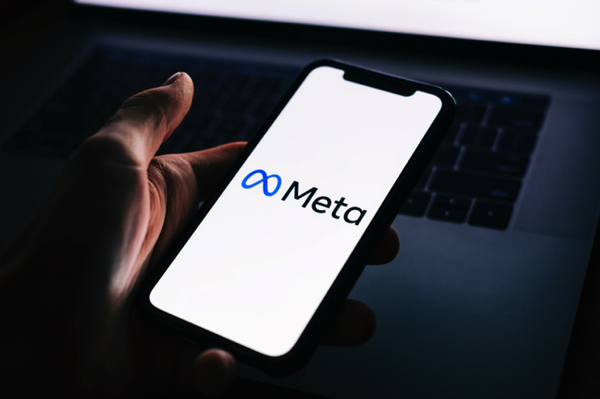Google’s updated ad terms spark privacy concerns, threaten medical and legal confidentiality
05/04/2025 / By Laura Harris

- Google’s updated Local Services Ads (LSA) Terms of Service grant it access to advertiser data, including phone calls, messages and business profiles, raising alarms in privacy-sensitive industries like healthcare and legal services, where client confidentiality is legally protected (e.g., HIPAA, attorney-client privilege).
- Businesses must accept the invasive terms by June 5 or lose ad visibility. Ad agencies can consent on clients’ behalf, but it’s unclear whether advertisers fully understand how their and their customers’ data will be exploited.
- Google’s integration of AI tools (e.g., call recording, keyword scanning in emails) enables it to create “caller-level profiles” and reverse-engineer pricing/data across industries, effectively manipulating markets and deepening surveillance capitalism.
- Features like Pixel’s real-time scam detection (analyzing calls locally) and Play Protect’s Live Threat Detection (scanning apps) may enhance security but condition users to accept pervasive monitoring, reinforcing reliance on tech corporations.
- Critics warn that Google’s synthesis of personal data, e.g., linking searches for lawyers, plumbers and medical services, can expose intimate life details (financial distress, health crises), chillingly eroding civil liberties under the guise of convenience.
Google has once again ignited privacy and surveillance concerns – this time with controversial updates to its Local Services Ads (LSA) Terms of Service, raising alarms in sensitive industries like healthcare and legal services.
Under the new terms, Google and its affiliates will gain rights over advertiser data, including access to phone calls, messages and business profiles – a move experts warn could violate client confidentiality in sectors bound by strict privacy laws.
The LSA program connects local businesses, such as plumbers, lawyers and doctors, with potential customers via Google Search and Maps. On April 22, an email was sent to advertisers stating that those who fail to accept the updated terms by June 5 will have their ads removed from Google’s platforms.
The revised policy grants Google the right to access, modify and display all LSA profile content, including business photos, contact details, service descriptions and pricing; record and analyze phone calls and messages between businesses and customers routed through Google; and create “caller-level profiles” using mined data – a practice described by critics as “chilling” due to its surveillance implications.
Ad agencies can consent on behalf of their clients, but it remains unclear whether advertisers will be fully informed about how their data and their customers’ information will be used.
The most pressing concerns involve healthcare providers and law firms, where client confidentiality is legally protected. If Google records calls and messages between doctors and patients or attorneys and clients, businesses may be forced to abandon LSA ads to avoid violating privacy laws like HIPAA (Health Insurance Portability and Accountability Act) and attorney-client privilege.
Google goes from lead tracking to surveillance capitalism
Google has monitored LSA calls since 2023.
In December 2024, Paradigm Business Solutions Inc. published an article about Google’s latest AI-powered features for Pixel devices and upgraded Play Protect.
The tech giant has rolled out an on-device AI system for Pixel 6 and newer models that analyzes phone conversations in real time, flagging potential scams. The feature detects suspicious patterns, such as impersonation attempts (e.g., fake bank representatives) and urgent demands (phony fraud alerts, “immediate payment” threats). If a potential scam is detected, users receive an on-screen warning and the option to end the call. Google emphasizes that all processing happens locally on the device and the feature is disabled by default. (Related: Google employees listen in on private conversations between users and Google Assistant.)
Google also upgraded Play Protect with Live Threat Detection, which scans installed apps for malicious behavior, such as stalkerware or credential-stealing malware, in real time. Like scam detection, analysis happens on-device, reducing data exposure.
However, it normalizes surveillance and trust in tech dependence. And now, Google’s shift from dispute resolution to large-scale data harvesting marks a dangerous escalation. The company now positions itself to reverse-engineer pricing strategies across industries, potentially manipulating ad bids; create detailed consumer profiles by stitching together call histories; and train AI Overviews to favor businesses that feed Google’s ecosystem with compliant data.
Check out BigTech.news for more similar stories.
Watch this Feb. 28 episode of “Brighteon Broadcast News” as Mike Adams, the Health Ranger, lays out why it is important for people to “de-Google” their entire lives.
This video is from the Health Ranger Report channel on Brighteon.com.
More related stories:
Google launches censorship measures to rig EU Parliamentary elections.
Amazon, Google and Microsoft caught providing services to BLACKLISTED Chinese firms.
Google censors all AI that generates supposed “hate speech” in Google Play Store.
Sources include:
Submit a correction >>
Tagged Under:
Big Tech, corporations, deception, EU, evil, Google, information technology, legal, LSA Terms, medical, privacy, tech giants, Twisted
This article may contain statements that reflect the opinion of the author
RECENT NEWS & ARTICLES
COPYRIGHT © 2017 BigTech.news
All content posted on this site is protected under Free Speech. BigTech.news is not responsible for content written by contributing authors. The information on this site is provided for educational and entertainment purposes only. It is not intended as a substitute for professional advice of any kind. BigTech.news assumes no responsibility for the use or misuse of this material. All trademarks, registered trademarks and service marks mentioned on this site are the property of their respective owners.


















